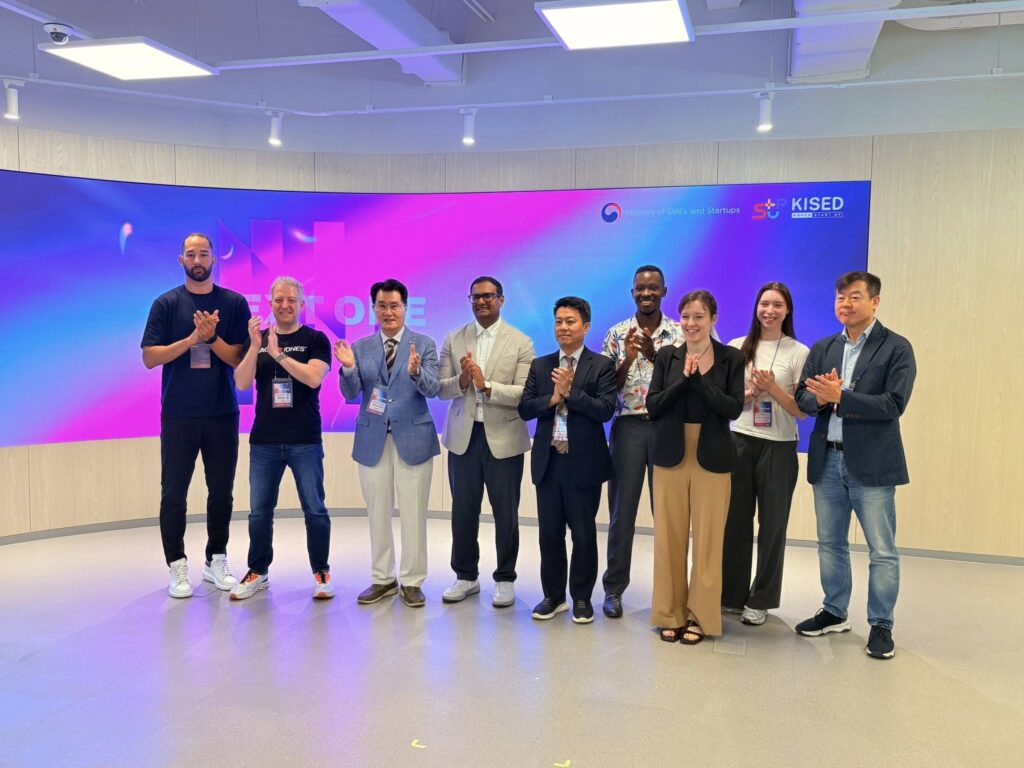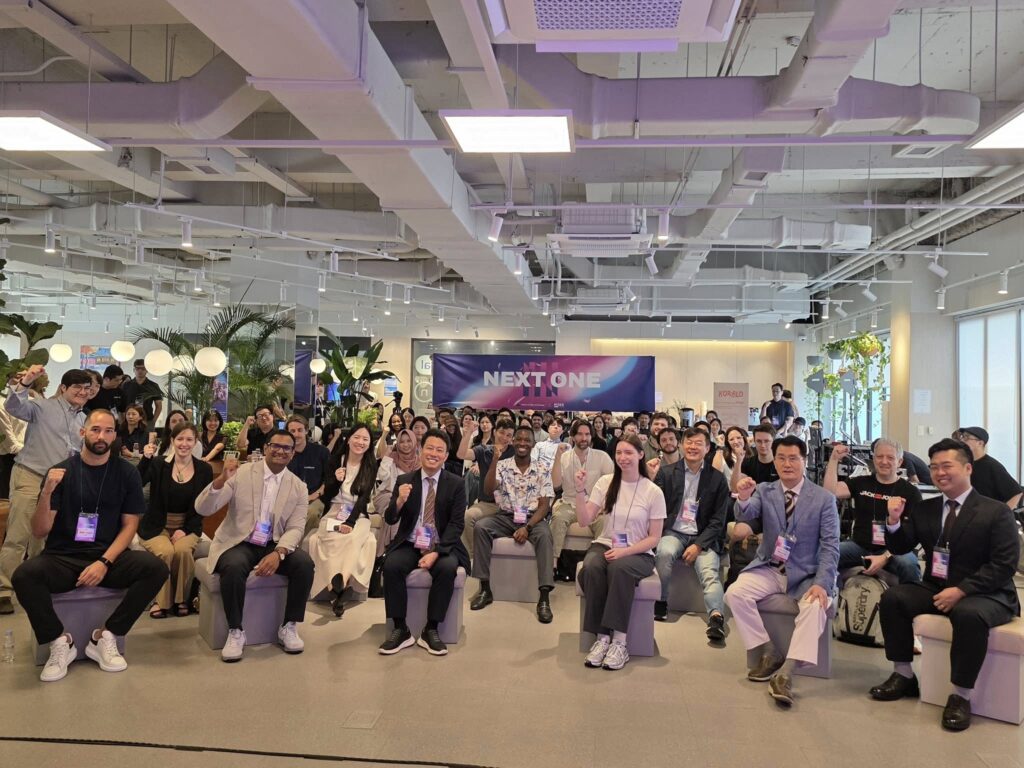South Korea Expands Global Startup Hub as Foreign Entrepreneurs Flock to Seoul
South Korea is doubling down on its efforts to become a global startup destination, with the Ministry of SMEs and Startups celebrating the first anniversary of its flagship Global Startup Center and announcing major expansions to support foreign entrepreneurs.

The Global Startup Center (GSC) in Seoul’s Yeoksam-dong district has emerged as a magnet for international innovation since opening in July 2023, attracting more than 7,000 global entrepreneurs from over 100 countries. At Wednesday’s anniversary ceremony, Minister Han Seongsook unveiled the center’s newest addition: the Global Startup Office (GSO), a dedicated 69-seat workspace designed specifically for overseas startups entering the Korean market.
“Over the past year, inbound policies have laid a meaningful foundation for foreign entrepreneurs to settle and grow in Korea,” said Im Jungwook, Director-General for Startup and Venture Innovation, addressing around 60 attendees including foreign startup founders. “We will continue to ensure that global innovators can freely enter the Korean market.”
The ministry’s aggressive outreach has already shown results. Through programs like K-Scouter and the Foreign Startup Support Project, officials have identified and attracted more than 140 promising overseas startups over the past year, providing support for their settlement and growth in Korea’s competitive market. The success reflects South Korea’s broader ambitions to position itself as a regional startup hub, competing with established centers like Singapore and emerging rivals across Asia.
Perhaps the most significant development announced at the ceremony was a comprehensive reform of the startup visa system. Working with the Ministry of Justice, officials have streamlined regulations to allow foreign professionals already in Korea—including professors, researchers, technical instructors, and specialized professionals—to launch startups while maintaining their existing visa status. The change requires applicants to pass a business feasibility and innovation review and receive ministry recommendation, but eliminates many bureaucratic hurdles that previously deterred foreign entrepreneurs.
The ministry plans to actively promote the program among professors and researchers, offering preferential consideration for government support programs as an incentive. Starting in September, the recommendation authority for Korea’s Special Startup Visa will expand beyond the central government to include local governments and private accelerators. The visa, which focuses on qualitative evaluations of business potential and innovation rather than strict quantitative requirements, represents a significant shift toward attracting talent over capital.
Recognizing that most foreign startups currently concentrate in the Seoul metropolitan area, the ministry announced plans to expand support infrastructure to regional areas. The goal is to help international entrepreneurs collaborate with local industries and research institutes outside the capital, potentially reducing costs and accessing specialized expertise. For companies showing high growth potential, the ministry will assign dedicated managers to provide tailored support including investment attraction, market expansion assistance, and collaboration opportunities with large Korean corporations. Officials have set an ambitious target of fostering the country’s first foreign-founded unicorn company.

The anniversary event also featured the launch of a foreign entrepreneurs’ community and the Global Venture Forum, reflecting the ministry’s recognition that successful startup ecosystems require more than just government support. Plans include establishing online platforms to facilitate networking and collaboration among international founders. The privately-led Global Venture Forum aims to expand cooperation opportunities between startups and investors worldwide, potentially positioning Seoul as a bridge between Asian and Western startup communities.
South Korea’s push comes as competition for startup talent intensifies across Asia. Singapore has long dominated as the region’s startup hub, while cities from Bangkok to Jakarta are launching their own initiatives to attract international entrepreneurs. The success of Korea’s approach will likely depend on its ability to offer unique advantages, from access to advanced manufacturing capabilities to proximity to the massive Chinese market.
The Global Startup Center’s rapid growth in its first year suggests strong initial momentum, but sustaining that interest as the novelty wears off will require delivering tangible results for the foreign entrepreneurs who have made Korea their base. With the expanded visa options and dedicated support infrastructure now in place, Korean officials appear confident they can transform initial interest into long-term success stories that will attract even more international talent to their shores.
Global Startup Center, Korea, Korean Government, go Korea,
Share
Most Read
- 1
- 2
- 3
- 4
- 5


Leave a Reply